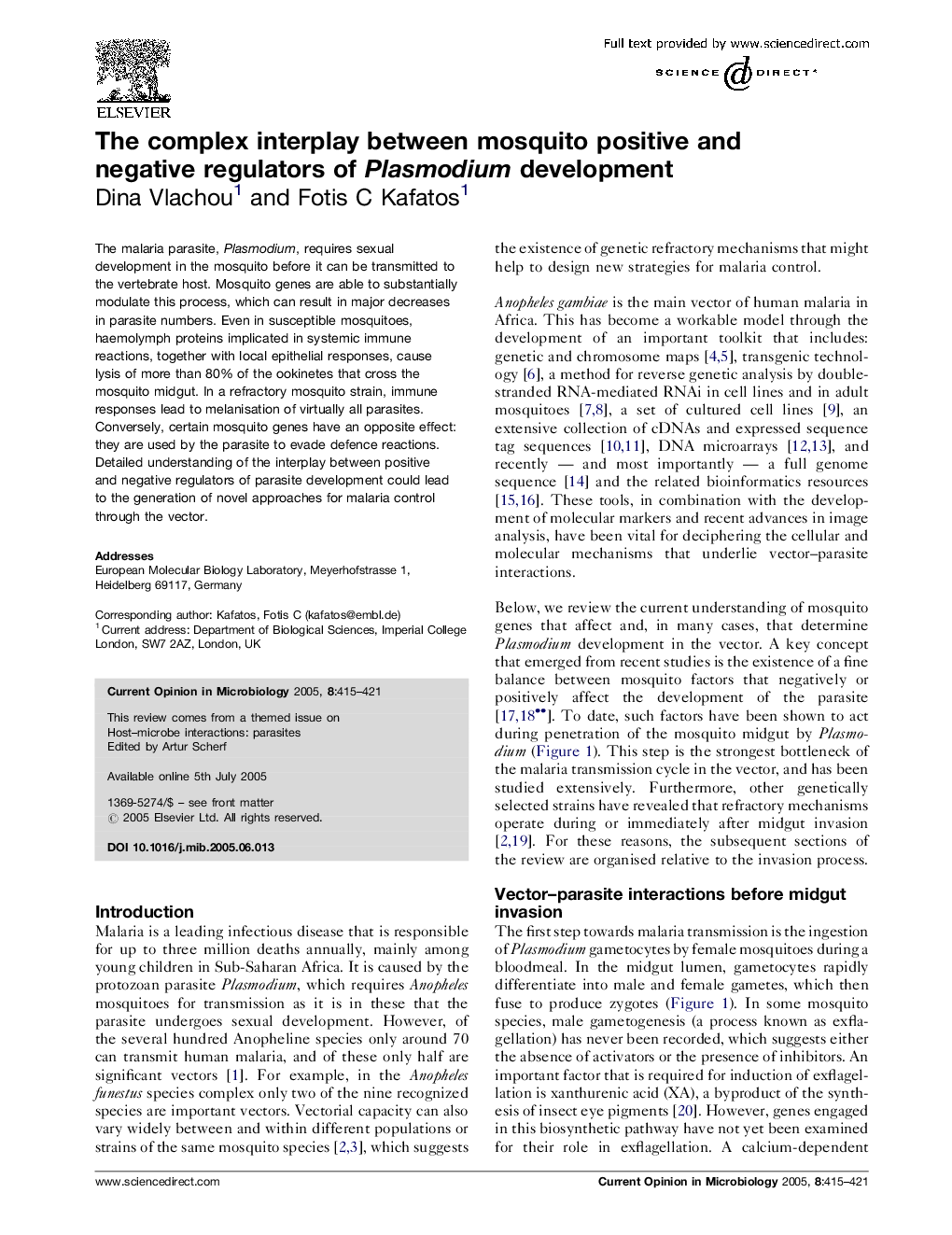| Article ID | Journal | Published Year | Pages | File Type |
|---|---|---|---|---|
| 9276658 | Current Opinion in Microbiology | 2005 | 7 Pages |
Abstract
The malaria parasite, Plasmodium, requires sexual development in the mosquito before it can be transmitted to the vertebrate host. Mosquito genes are able to substantially modulate this process, which can result in major decreases in parasite numbers. Even in susceptible mosquitoes, haemolymph proteins implicated in systemic immune reactions, together with local epithelial responses, cause lysis of more than 80% of the ookinetes that cross the mosquito midgut. In a refractory mosquito strain, immune responses lead to melanisation of virtually all parasites. Conversely, certain mosquito genes have an opposite effect: they are used by the parasite to evade defence reactions. Detailed understanding of the interplay between positive and negative regulators of parasite development could lead to the generation of novel approaches for malaria control through the vector.
Related Topics
Life Sciences
Immunology and Microbiology
Microbiology
Authors
Dina Vlachou, Fotis C Kafatos,
